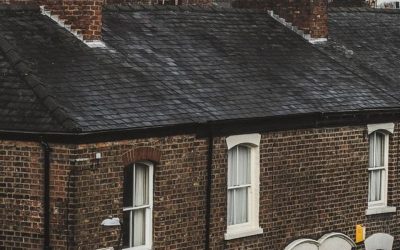Some people have turned house flipping into a career and glamourised the process of house flipping. Are people in the UK also taking to this profitable yet, at times, risky business practice?
People flip houses in the UK. In fact, the trend has not slowed down at all. What’s more, house flipping did not suffer during the pandemic and surprisingly reached an all-time high.
This article will delve into house flipping in the UK. It will discuss the risks, finance options, and tax implications you need to consider before flipping a home.
What Is House Flipping?
House flipping is buying a home with the intention of selling it within a short period of time, typically a year or less, with the goal of making a profit. In other words, it is a means of making money through short-term real estate investments.
Depending on the market, if house prices are rising, you may not need to improve the newly acquired property. Often, however, the homes undergo improvements or renovations to increase the property value and attract potential buyers.
To make a profit, the home must be captured below market value. Buying a home below market value usually leads investors to buy repossessed properties or auction properties. Overall, like many other investments, the goal is to buy low and sell high.
Buying a property below market value should give you some financial room to cover the renovation costs, adding value to the site before selling it for, hopefully, a tidy profit.
The Unique Role of House Flippers
House flipping adds a valuable component to the housing market as a whole. Flipping pushes more desirable homes into the market as many flipped houses are often those that need improvement. Flippers take on the problem houses that other buyers would be hesitant to take on as-is.
Flipping vs. Buy-to-Let
Buy-to-let is another option for those looking to make income through real estate. However, flipping can net significant returns more quickly. Buy-to-let, on the other hand, produces a more moderate return, although it can be a steady income at times.
There can be disadvantages to renting out properties. Below are a few of these reasons that push others to be a house flipper rather than renter:
- Maintaining the home
- Paying home insurance premiums
- Handling difficult tenants
- Dealing with changes in tax rates and tax codes
- Potentially depreciating property value
If you want to learn more about property investment for renting check out: Property Investment for Beginners
Risk Assessment When Flipping Houses
The goal of house flipping is to net a profit. In the UK, approximately 75% of flipped houses sell for more than they were initially bought for. But, there are risks associated with flipping houses, and investors should be aware of these risks and prepare themselves accordingly.
Choosing the Property
A key to flipping houses is finding the right investment property. This includes the right property at the right price. You will want to be aware of the housing market overall with an understanding of what areas are growing and what types of homes people are looking for.
Renovating the Property
Hiring a surveyor is a crucial factor as this can prevent you from purchasing a home that requires improvements beyond your budget and assumed return on investment. It can also help you get an idea of how much time and money it may take before the property is ready to sell.
If you’re experienced and confident enough you can do many of the repair and renovation work yourself. If you decide it would be better to hire outside professionals or tradespeople, this will affect your bottom line, but the work will likely be completed faster and to a higher standard than doing it yourself. Make sure to obtain multiple quotes before making a selection.
Some improvements that add value that are not intensive or expensive include:
- Replacing flooring;
- Improving the curb appeal;
- Painting and decorating.
Replacing appliances and other improvements are much more costly and may not be required if you are looking to sell the property rather than rent it out.
Finding a Buyer
One of the most significant issues that may arise when house flipping is finding and securing a buyer. This generally follows the same process as any other house sale, you can list it with an estate agent or send it to auction.
Buying a flipped house has its pros and cons and some buyers may be hesitant to purchase a home that has been flipped.
There are clear advantages to buying a flipped house. First, flipped houses are usually move-in ready. The new owner will not need to make any significant changes that impact their move-in date. Flipped homes tend to have an updated and stylish design, with the main rooms such as kitchen and bathroom being newly fitted and having new appliances.
The disadvantages are clear as well. Flipped houses are certainly aesthetically pleasing, but problems can lie below the pleasant facade. Some investors may cut corners and only cover issues instead of addressing them.
Financing Flips
When people buy a home for use as a primary residence, they are likely to finance the house by taking out a mortgage. In this instance, a mortgage is a good financial option as the loan terms are generally spread out over 15 to 30 years.
Flips, however, are not intended to be long-term investments. Thus, a typical home mortgage is not the best option. Consequently, in the UK, short term financing is prohibited for residential mortgages and buy-to-let-mortgages.
Bridging Loan
A bridging loan, also known as a buy-to-sell mortgage, was created for short term financing. While bridging loans may provide the capital needed to purchase a home to flip, they do come at a steep cost.
The interest rate is significantly higher than that of a traditional residential mortgage. You will also be required to pay a deposit totalling 20% of the price of the home plus any loan fees.
There are two repayment options for interest accrued on bridging loans; you can make monthly interest payments or roll the interest and pay it when the property sells. Contact our finance expert to discuss Bridging Options.
Buying the Property Outright
If you have the funds, you can purchase the home with your own capital. Those who flip many properties may choose to use the proceeds from the sale of a previous home to purchase the next. However, you should keep in mind that the funds will be tied up until the house is flipped and sold.
Additional Fees
Additionally, there are fees that will also cut into the profits. As mentioned above, a survey is a critical part of purchasing any property. As well as repair costs, there will also be holding costs to maintain the property while you are the owner. Depending on the situation, you may have legal, broker, or estate agent fees.
Tax Considerations When Flipping Houses
Buying a home and then selling it for a profit can have tax implications that must be considered. Property taxes can significantly impact the return on investment. It is highly advisable to get a rough estimate of the taxes you may face when purchasing properties to flip.
Capital Gains Tax
One such tax implication is the Capital Gains Tax. This is a tax that is added when someone sells an asset that has increased in value. Properties are typically paid on properties, including your primary home and other properties you have owned.
The UK has instituted a deadline for reporting and paying any Capital Gains Tax. This deadline is 60 days after the sale. With such a shortened window, it is imperative that you disclose the necessary information as soon as possible. Contact our accountant to get some advice about Capital Gains Tax.
Stamp Duty Land Tax
Stamp Duty Land Tax may not apply to every flipped home, but investors and potential investors should be aware of this tax. There are two criteria that a property must meet that require Stamp Duty Land Tax.
The Stamp Duty Land Tax criteria are price and location. It applies to property (or land) purchases in England and Northern Ireland. It only applies to properties over 125,000 pounds.
The Stamp Duty Land Tax has more rules. There are additional stipulations for properties located in Scotland and Wales. The amount also varies if you are buying an additional property versus your first property. You can use the Stamp Duty Tax calculator to find out how much you will need to pay.
Conclusion
People flip houses in the UK. There are specific tax considerations, however, that you should be aware of. Beyond that, house flipping in the UK, just like in other areas, can be profitable under the right circumstances and with the right breadth of knowledge.
Sources
- Buy Association: ‘House flipping’ is still big business but is it worth it?
- UK Government: Capital Gains Tax
- The Guardian: Home ‘flipping’ in the UK reaches 12-year high, despite Covid crisis
- Investopedia: Rental Properties: Pros and Cons
- Rocket Mortgage: Buying A Flipped House: What You Need To Know
- Is It Bad To Buy a Flat Instead of Renting? - February 20, 2023
- If You Buy a UK House at Auction, When Do You Pay? - February 15, 2023
- Why Are Houses in the UK So Overpriced? - February 7, 2023


